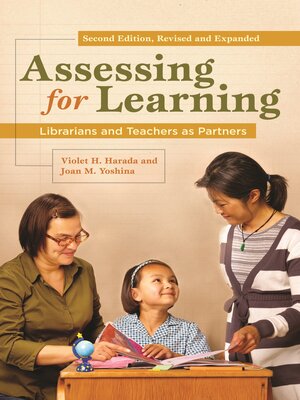
Sign up to save your library
With an OverDrive account, you can save your favorite libraries for at-a-glance information about availability. Find out more about OverDrive accounts.
Find this title in Libby, the library reading app by OverDrive.



Search for a digital library with this title
Title found at these libraries:
| Library Name | Distance |
|---|---|
| Loading... |
In this book, theory is blended with practical application to provide a concise, up-to-date explanation of how school librarians can work with students and teachers to assess for learning in 21st century schools.
Coauthors Harada and Yoshina authored the first text that focused on learning assessment in a school library context. In this revised and expanded version of Assessing for Learning: Librarians and Teachers as Partners, they continue to shed light on the issue of school librarians helping students to assess for learning.
The book begins with a brief discussion of national reform efforts and the importance of assessment for effective learning within this context. The balance of the book provides numerous strategies and tools for involving students as well as library media specialists in assessment activities, emphasizing the importance of students assessing for their own learning. It also provides specific examples of how assessment can be incorporated into various library-related learning activities. All chapters in this second edition have been updated with additional information, and three new chapters on assessing for critical thinking, dispositions, and tech-related learning have been added.
Coauthors Harada and Yoshina authored the first text that focused on learning assessment in a school library context. In this revised and expanded version of Assessing for Learning: Librarians and Teachers as Partners, they continue to shed light on the issue of school librarians helping students to assess for learning.
The book begins with a brief discussion of national reform efforts and the importance of assessment for effective learning within this context. The balance of the book provides numerous strategies and tools for involving students as well as library media specialists in assessment activities, emphasizing the importance of students assessing for their own learning. It also provides specific examples of how assessment can be incorporated into various library-related learning activities. All chapters in this second edition have been updated with additional information, and three new chapters on assessing for critical thinking, dispositions, and tech-related learning have been added.







